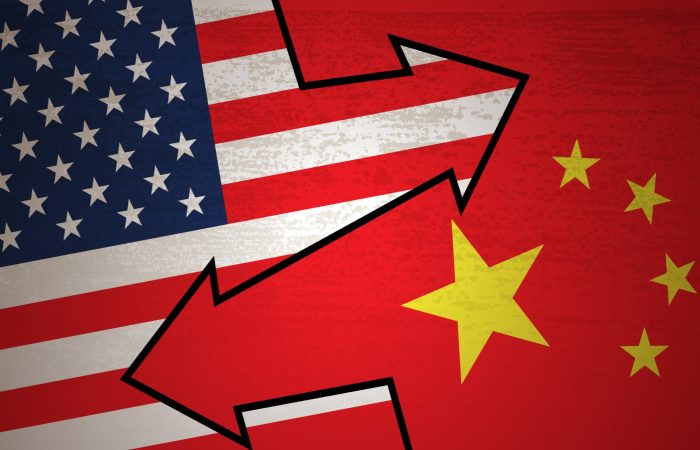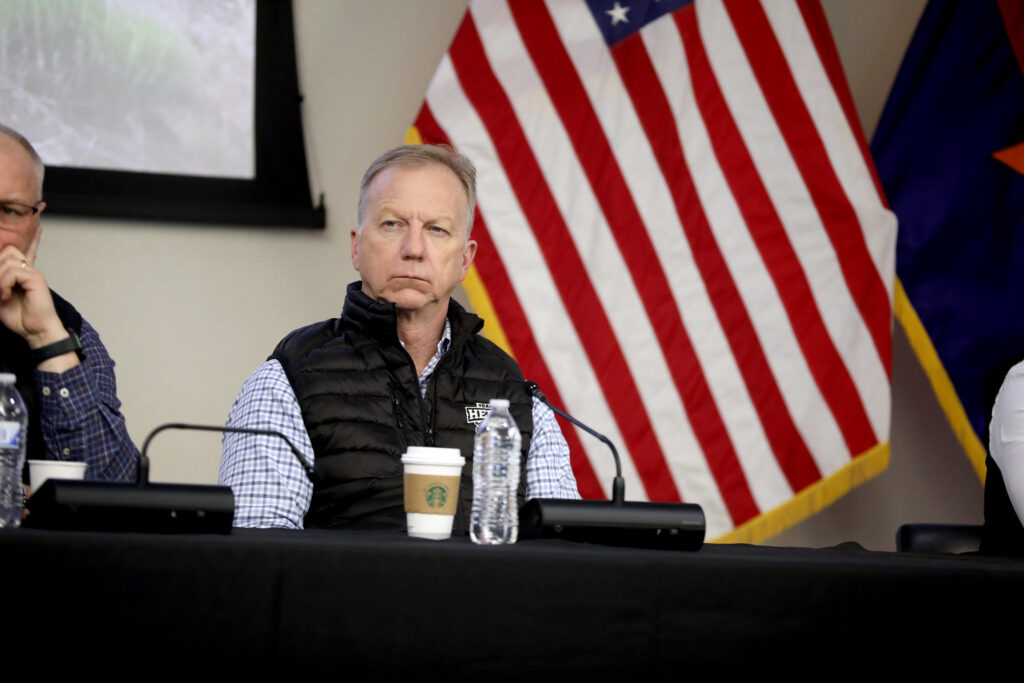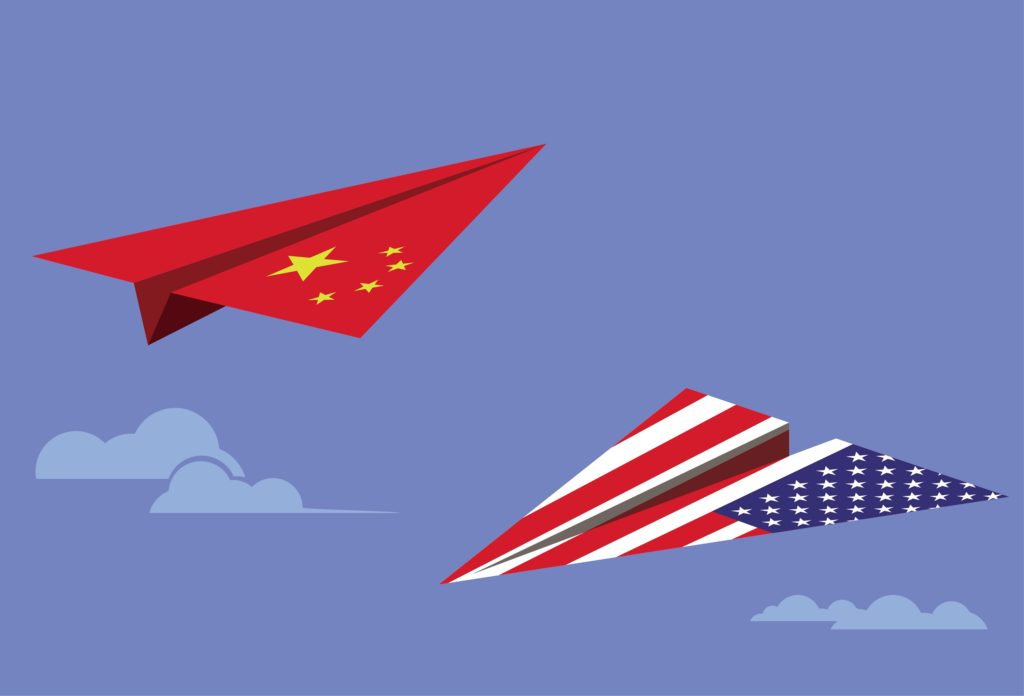On July 20, 2023, Foreign Policy Editor-in-Chief Ravi Agrawal sat down with U.S. Democratic Congressman Ro Khanna live to discuss “How to Reset the U.S.-China Relationship.” Ro Khanna, Representative in the U.S. House for the 17th District of California since 2017, is also a member of the Select Committee on the Strategic Competition between the United States and the Chinese Communist Party and serves on the House Armed Services Committee, among other positions. This 50-minute virtual interview was streamed live on the Foreign Policy website to subscribers. The full recording is available to Foreign Policy subscribers.
Throughout the event, Ravi Agrawal presented a series of questions to Rep. Ro Khanna, to which Rep. Khanna directly replied. The majority of the questions were directly inspired by recent events, such as Rep. Khanna’s public remarks at Stanford’s Hoover Institution in late April, the recent string of U.S. diplomatic visits to China by secretaries like Antony Blinken and Janet Yellen, and the state visit to Washington by India’s Prime Minister Narenda Modi happening that same week. Based on his consistent use of historical case studies as reference throughout the discussion, Rep. Khanna appears to be constantly analyzing the current issue of ‘resetting’ U.S.-China relations through the larger lens of historical precedent, searching for how the successful cases of the past can be applied to today.
Mr. Agrawal started the discussion by summarizing Rep. Khanna’s April 2023 speech made at Stanford detailing his strategy of “constructive rebalancing” with China; a plan and concept that Rep. Khanna repeatedly referenced throughout the webcast. Mr. Agrawal questioned how this strategy—which is based on four guiding principles (an economic reset to reduce trade deficits and tensions; opening lines of communication; effective military deterrence; and respect for our Asian partners and robust economic engagement)—can realistically become reality and why such a reset is even required. In short, Rep. Khanna responded that the last four decades has witnessed a buildup of resentment and underinvestment, ultimately leading to not only an imbalance in economic development but also resentment and tensions.
Another common topic of interest was diplomacy and, more specifically, official visits by state representatives. Rep. Khanna said that the current situation “requires statesmanship and leadership,” opining that Secretary Blinken has done an “amazing job” and “acquitted himself very well.” When asked about Congresspeople not yet being able to go to China, Khanna said he does think that it is important and good for policymakers to be a part of the conversation, and for others like Henry Kissinger to build goodwill, but it is not essential for policymakers. He noted that China is making a lot more complaints regarding Taiwan than they have in the past, later advising that China should not “overread” visits to Taiwan and expounding that ‘threading the needle’ with the Taiwan issue is tough but doable. The One-China policy, Khanna explained, is based on non-coercion and non-military engagement while the Taiwan Relations Act promises Taiwan assistance in the event of military invasion; both are simultaneously in play, and no one wants war. “Our desire is to protect the One-China policy” without military coercion, though “China shouldn’t underestimate the United States’ ability’ to fulfill these promises” made under the Taiwan Relations Act, Khanna summarized later.
Rep. Khanna also briefly discussed matters of trade and tariffs, all but lamenting the fact that the Cold War history of the U.S. pushed its domestic market to be purely a free market industry, which has led to imbalance and a need for strategic tariffs on industries like carbon and steel. “Let’s have a CHIPS Act for steel, aluminum, climate tech, and other strategic industries,” he said, the finances of which should be able to be resolved given how unnecessarily large the current defense budget is. At another point, Mr. Agrawal directly asked Rep. Khanna: How do you get China to play by the rules? “First thing we do,” Khanna responded, “is to not give them a choice” with demand-side policy and supply-side policy. China, and Xi Jinping in particular, “should recognize it’s in [their] own interests to diversify [their] economy” and “they’ll have to adjust to that.” Then, clarify it is not “recoupling” but “rebalancing,” and emphasize working together on common issues like AI, climate, and health. Khanna said the U.S. can get them to agree by “being tough on trade negotiations like Reagan” while coupling agreements “with the One-China policy…because that seems what China deeply cares about.”
When asked to define the recently popularized term ‘derisking,’ Rep. Khanna said he would call it “rebalancing” instead; a direct reference to his four-point speech made in April. He also noted that, while the term ‘derisking’ is more realistic than ‘decoupling,’ American industry needs inspiration—the kind that American leadership has successfully given in the past alongside strategic state intervention in private industries—and “‘derisking’ doesn’t resonate.”
Following brief comments on Ukraine, U.S.-India relations, and the 2024 U.S. presidential election, to close, Mr. Agrawal asked Rep. Khanna: Why not help China’s rise? Do we need to be enemies? Khanna said he does not wish the Chinese people badly, expressing instead a focus on figuring out why the policy has hollowed out industry in the U.S. and emphasizing again the importance of checks and balances to protect U.S. interests. “I don’t think we’re doing anything to prevent their rise,” Khanna said, though he finished by noting a rebalance and diversification of both their economy and socio-political format could benefit China at large.




